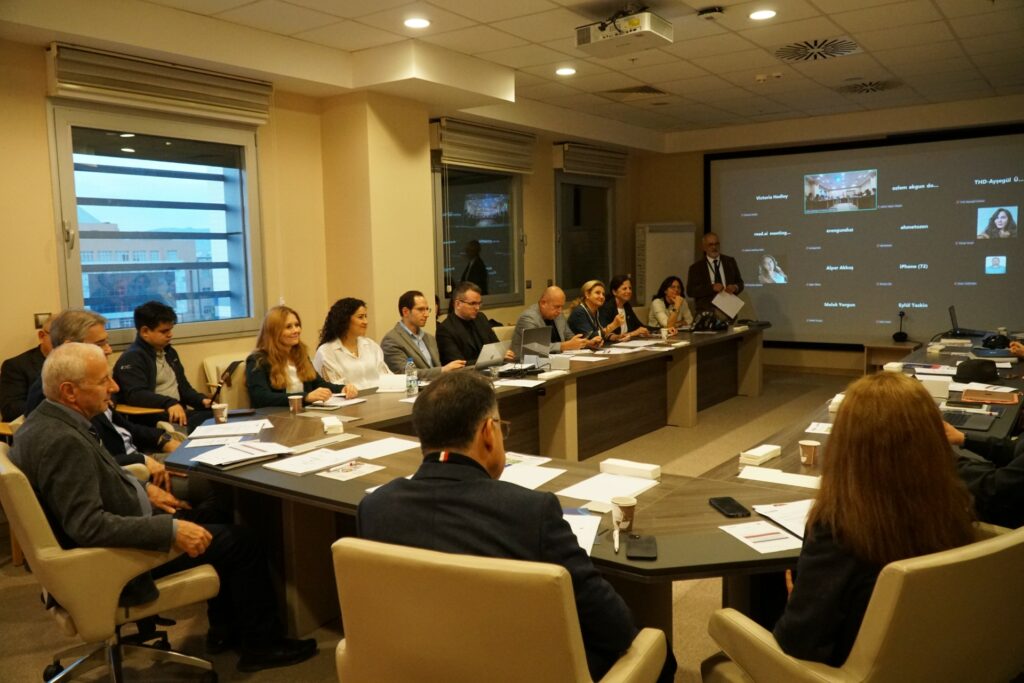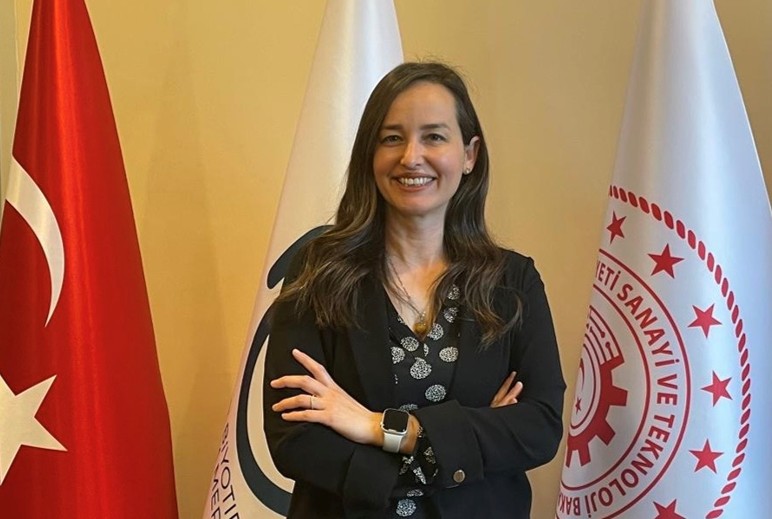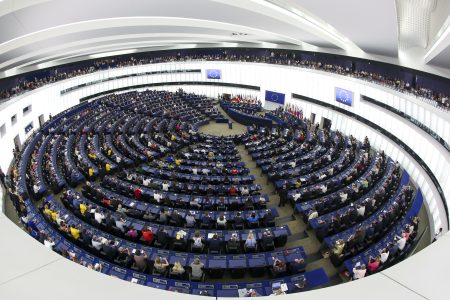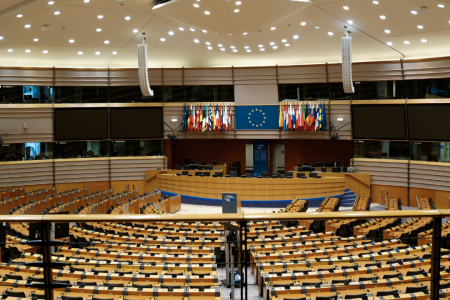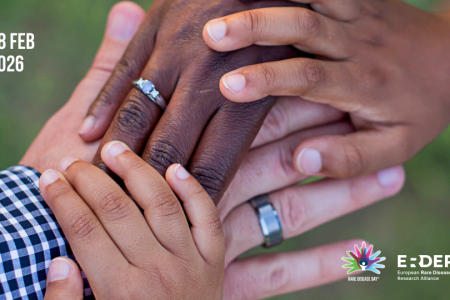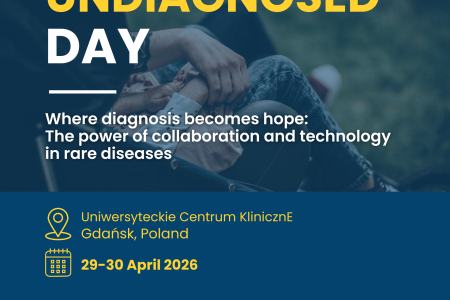On 13 November in İzmir, the day before ICORD 2025 opens, Türkiye’s National Mirror Group (NMG) met face to face for the first time.
ERDERA spoke with Emine Eylül Taşkın, who works on both the Education and Training and (Inter)National Alignment areas at ERDERA as well as the İzmir Biomedicine and Genome Center (IBG), about why NMGs matter, how Türkiye’s group can align national priorities with European efforts through ERDERA, and how this work can help accelerate earlier diagnosis, better care and develop a more inclusive research.
The discussion took place against the backdrop of Türkiye’s 2023–2027 National Rare Diseases Health Strategy and Action Plan, which reflects Türkiye’s distinct context of rare conditions affecting millions and consanguinity rates are higher than in many European countries —unevitably shaping needs in diagnosis and care.
With the ICORD (International Conference for Rare Diseases and Orphan Drugs) Society providing an international platform for exchange, the NMG meeting is a timely chance to set practical goals and connect with peers across Europe and beyond.
What do you want this first face‑to‑face NMG Türkiye meeting in İzmir to achieve for people living with a rare disease, and what immediate actions will follow in the months after ICORD?
NMG Türkiye was established in early 2025 as a wide, multi-stakeholder platform bringing together representatives from public authorities, research institutes, funding agencies, clinical researcher associations, and patient organizations. Over the course of three preparatory meetings, the group built strong momentum. Following the NMG workshop in Riga in June, we decided to meet face to face in İzmir to discuss and refine a roadmap. Working closely with key representatives, we drafted the first version of this roadmap.
In doing so, we ensured that our objectives are aligned with both ERDERA’s overarching goals and Türkiye’s National Rare Diseases Health Strategy and Action Plan (2023–2027), so that NMG Türkiye’s activities contribute effectively to national priorities while remaining well connected to the broader European framework.
I believe that with this shared commitment and collaboration, NMG Türkiye will make a meaningful contribution to the rare disease ecosystem in Türkiye, accelerating earlier diagnosis, improving care, and promoting more inclusive research in Türkiye and internationally. It will become a strong and active partner within the European rare disease community.
Türkiye has a comprehensive 2023–2027 National Rare Diseases Health Strategy and Action Plan covering awareness, newborn and carrier screening, patient support, data systems and access to therapies. How can an NMG make these measures more coordinated and implementable on the ground?
NMG Türkiye’s representatives bring years of experience in their respective fields and are deeply engaged in developments related to rare diseases both in Türkiye and internationally. They closely follow European processes and are well-prepared to contribute to rare disease initiatives This experience allows them to clearly understand the priorities of Türkiye’s National Plan and to support its implementation effectively.
Thanks to this expertise, NMG Türkiye can allocate and prioritize tasks efficiently, ensuring that actions are well-coordinated and focused. By aligning NMG Türkiye’s roadmap with both ERDERA’s vision and Türkiye’s national strategy, it can be ensured that activities not only address local needs but also contribute meaningfully to the broader European rare disease ecosystem. We also believe that the representatives from patient organizations in our group will provide valuable guidance and help ensure that patients’ needs and expectations are fully addressed. In this way, NMG Türkiye can make national measures more connected, coordinated, and implementable on the ground.
The Turkish national plan calls for strengthening data and evidence, including a national rare‑disease data system and standards aligned with FAIR principles. How could the NMG catalyse practical steps here (governance, consent models, interoperability with ERNs and ERDERA’s Virtual Platform)?
NMG Türkiye can play an active role in supporting capacity-building and data system development. They can contribute to training activities and provide consultation on establishing and improving a national rare disease data system aligned with FAIR principles.
Our representatives already take part in capacity-building programs and help disseminate these opportunities through their own professional networks. Participation from Türkiye in these initiatives has always been high, which reflects the country’s growing expertise and commitment in this field.
I believe that Türkiye has the necessary capacity to take strong steps toward developing robust data systems, and its NMG can act as a bridge, linking national efforts with European platforms such as ERDERA’s Virtual Platform and the European Reference Networks (ERNs) to ensure interoperability, governance, and data-sharing practices that meet international standards. By fostering collaboration and alignment across these systems, NMG Türkiye can catalyse practical and sustainable steps toward a more integrated national data ecosystem.
In what ways does Türkiye’s context—its population size and diversity, the higher rate of consanguinity, and strong clinical and genomics capabilities at centres such as IBG—shape the priorities of the NMG and its particular fit with the European model?
Türkiye’s context makes its contribution to the European rare disease community both distinctive and valuable. With a large and diverse population, a wide geographic range, and a higher rate of consanguinity than most European countries, Türkiye faces a broader spectrum and higher incidence of rare diseases (approx. 5 milion rare disease patients). This context elevates the importance of early diagnosis, genetic counselling, and comprehensive data collection as national priorities.
At the same time, Türkiye has strong clinical and genomics capabilities, with centres such as the İzmir Biomedicine and Genome Center (IBG) and leading university hospitals playing key roles. The country also hosts four established biobanks, providing a solid infrastructure for integrating genomic data, translational research, and clinical practice. These assets give Türkiye an important role in advancing rare disease research and in building connections with European partners.
Within this framework, NMG Türkiye aims to strengthen national capacity, increase awareness, and foster international collaboration and participation. By supporting more joint projects and research partnerships, the group can help ensure that Türkiye’s scientific strengths translate into tangible benefits for patients. In this way, NMG Türkiye serves both as a bridge and a contributor, aligning the country’s national priorities and unique context with the broader European rare disease agenda under ERDERA and the European Reference Networks (ERNs).
How do you expect NMG Türkiye will embed patient involvement from the start, perhaps learning from other NMGs, and help set agendas and success metrics?
From the very beginning, NMG Türkiye aims to embed patient involvement as a core principle. The National Rare Disease Federation of Türkiye is already part of the National Mirror Group and actively participates in related activities. In addition, the National Advisory Board (NAB) Deputy representative of Türkiye is a member of a patient organization, ensuring that the patient voice is directly represented in decision-making in ERDERA.
NMG Türkiye is also committed to close collaboration with other NMGs—sharing best practices and learning from their experiences on how to effectively integrate patient perspectives. Given Türkiye’s large population and significant rare disease community, we believe we can both benefit from the insights of others and contribute valuable experiences and lessons over time.
By embedding patient perspectives early and continuously, NMG Türkiye is already on its way to co-developing its roadmap and defining success metrics together with patients, ensuring that outcomes are meaningful and relevant to those most affected.
Looking ahead two to three years, what would success for Türkiye’s National Mirror Group look like in practical terms for people living with a rare disease, and which single system change is most needed to achieving it?
In the next two to three years, success for Türkiye’s National Mirror Group in the rare disease field would mean increased research, awareness, education, and stakeholder engagement. Working groups would be established to drive sub-projects focused on strengthening academic research, capacity-building, and education, as well as advancing civil society involvement and public awareness. Efforts would also aim to enhance international collaboration in rare disease research. Throughout this process, active participation in ERDERA and the broader European ecosystem would be pursued to maximize synergies and impact.
In the next two to three years, success for Türkiye’s National Mirror Group (NMG Türkiye) would mean tangible improvements in research, awareness, education, and stakeholder engagement for people living with rare diseases.
As outlined in the draft roadmap, several working groups would be established to implement this vision through sub-projects focused on strengthening academic research, capacity-building, and education programs, as well as advancing civil society involvement and public awareness.
Efforts would also aim to enhance international collaboration and in rare disease research. Throughout this process, active participation in ERDERA and the broader European ecosystem would be pursued to maximize synergies and impact.
